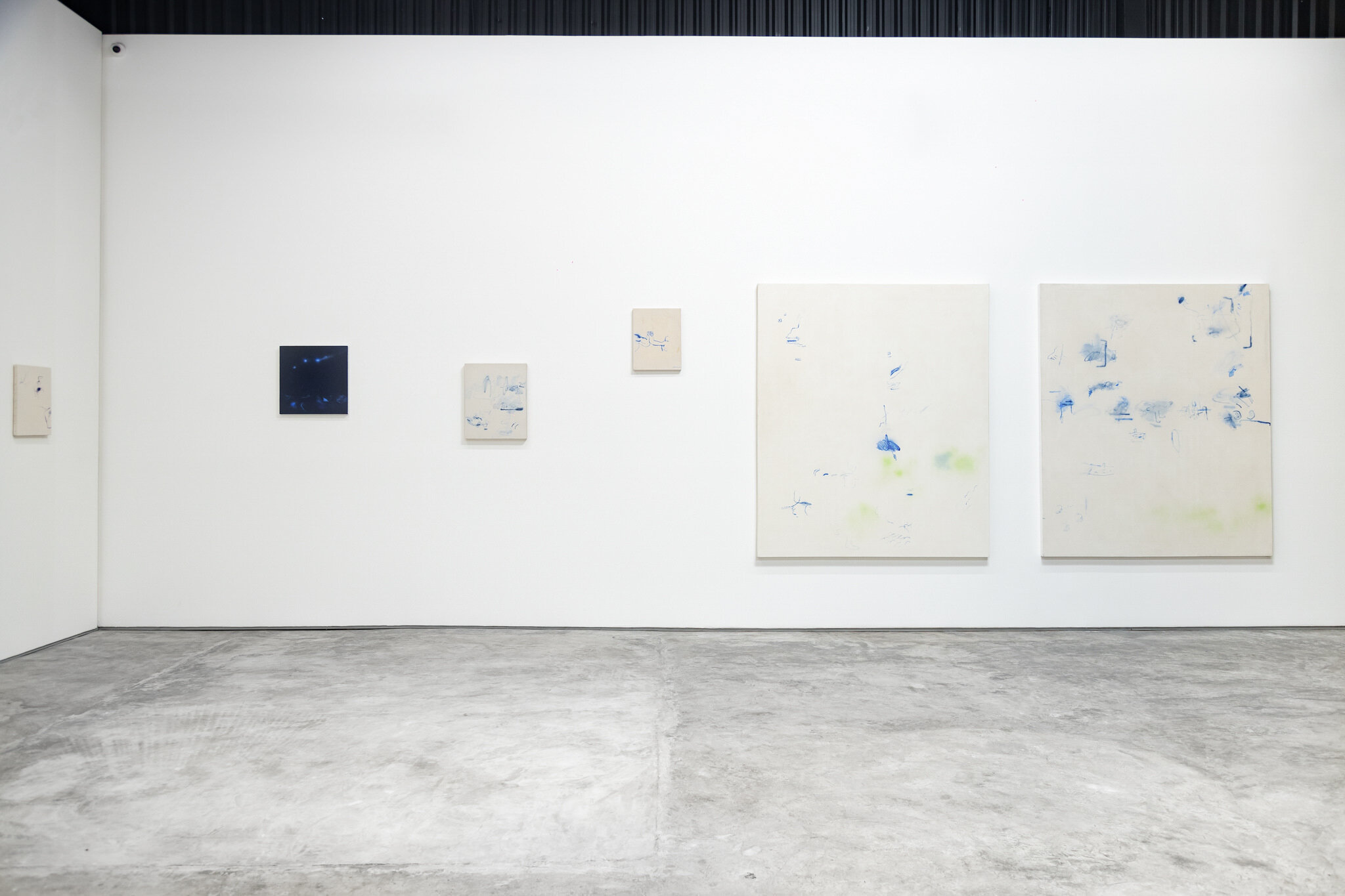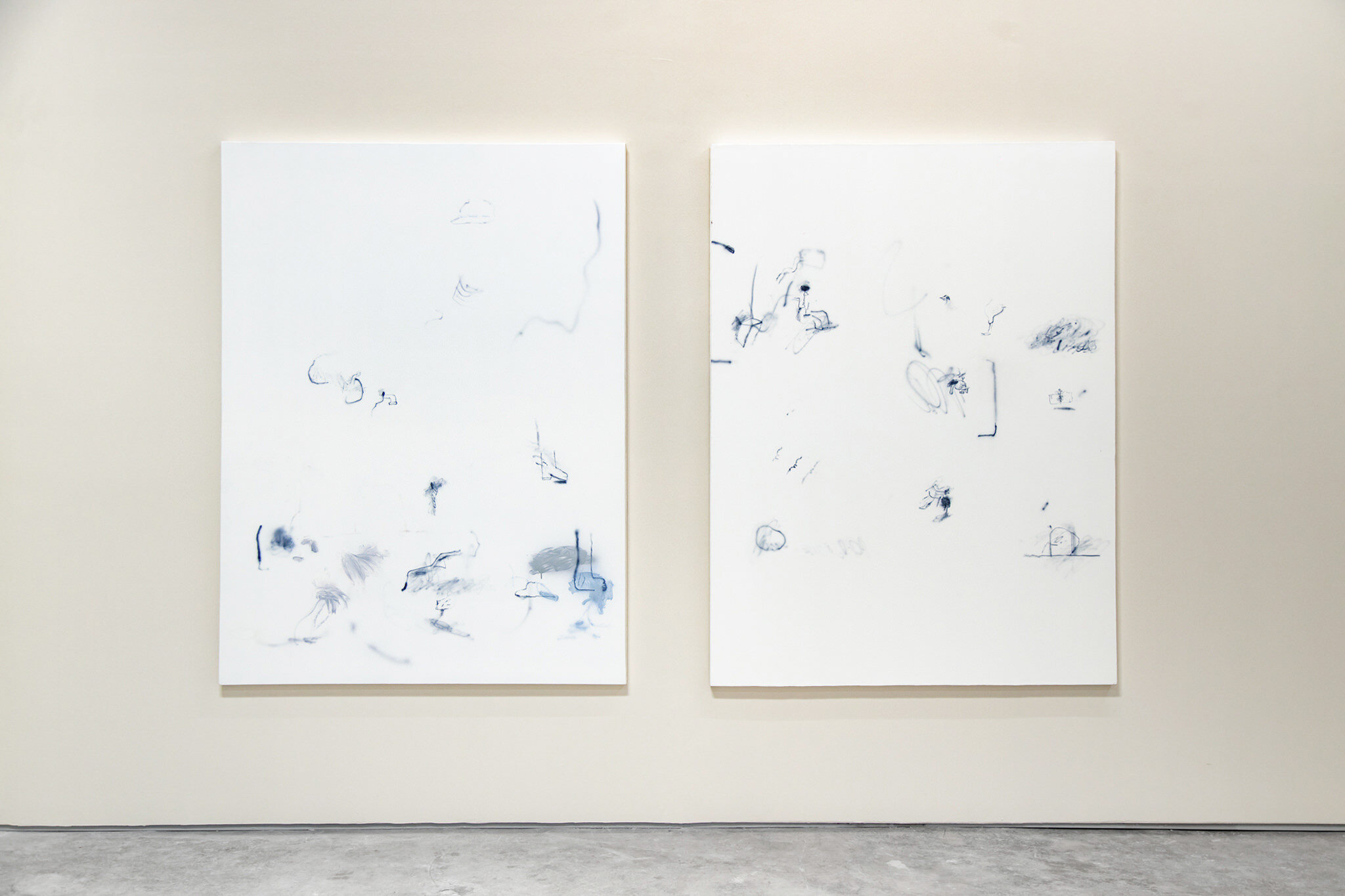Jerónimo Rüedi
AL PRINCIPIO EL MUNDO ERA COMPLETAMENTE REAL
September 26, 2020
In the beginning was the word. But before the beginning, the world was without language. There were no repetitions, no concepts to associate like-objects. All events and things stood alone, perfectly unique. Because of this, it could be said, things were realer . Their presence was immediate: sensed, rather than conceptualized. And if the infinite has ever been felt, it was felt by languageless beholders faced with the particularity of these objects.
It is in this time—at this real beginning—that Jerónimo Rüedi’s new paintings take place. In “Al principio el mundo era completamente real”, the latest of Rüedi’s provocative investigations into processes of signification, the artist has turned his back completely on socially agreed-upon approaches to representation. Instead, he has opted for unapologetic idiosyncrasy, creating ruthlessly personal imaginations of prediscursive experience. If language is a convention that not only allows us to communicate what we see, but shapes how we see it, Rüedi’s refusal to paint conventionally is a way of inviting the viewer into the state of thrill and confusion that he believes would define such a way of seeing.
A rigorous experimentalist, Rüedi has followed personal intuition and curiosity over trends over the course of his career, developing an ever-changing, yet unmistakable, vocabulary of image and technique. His work has evolved in a constant search for new textures, tools, and philosophies of image. Here, Rüedi’s vision of presymbolic experience, painted with the cartoonist’s levity, is expressed through abruptly interrupted gestures, hazy atmospheric fields, and off-kilter, frenetic lines. What’s more, the work has been painted with tools creatively repurposed against their intended use. The airbrush, typically used to create illusory, trompe-l’oeil effects, has been weaponized against such realist gestures. Industrial car paint has been exploited to create textureless backgrounds that allow even the most minimal gestures to stand out in uncanny relief.
The result is a universe of pure impulse and suggestion. Objects of our world are present, but they have only been partially hinted at, rather than faithfully depicted . The work’s process of representation is based more in its tendency to swerve away from representing things than in representation itself. As soon as any recognizable shape begins to take form, the gesture automatically terminates and the object is left truncated. The forms as such are, at once, hilarious, provocative, and puzzling. Are they abstract marks? Asemic letters? Strange creatures Rüedi has caught in the act of being, as they shift and repeat through quantum dimensions? Regardless of your present opinion, these marks take on unexpected lives of their own, forming communities of shapes with personalities and volitions that tickle and haunt the viewer’s imagination.
Although we know to expect the unexpected, Rüedi’s work still catches us off-guard. It doesn’t flatter our ways of looking, but challenges us to see the world in new, and sometimes uncomfortable, ways. So, how was it that we see the world before language? In “Al principio el mundo era completamente real”, Rüedi has invited us back to this beginning, the real beginning, when things meant nothing but their very presence. Let them speak to you, in their own language without words.
Kit Schluter












